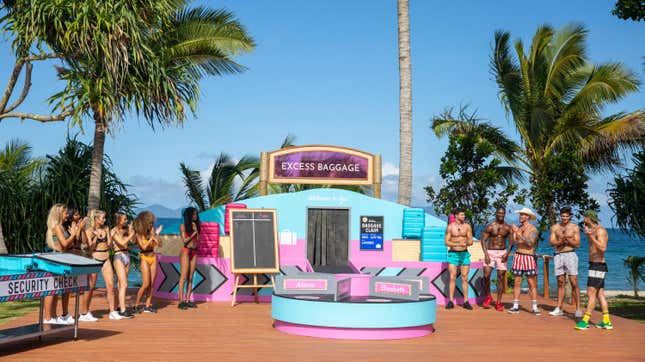

The highlight of the Bachelor franchise is, inarguably, Bachelor in Paradise, where previous seasons’ losers—10 women and 10 men—get together for another shot at love. Much like The Bachelor and The Bachelorette, the goal for contestants is to get engaged, but in a tropical location instead of the mansion. Before diving into the first week of the U.S. version of the hit U.K. reality series Love Island, I assumed the show would be similar to Paradise. But after watching the first week of real-time episodes, starting with last Tuesday’s premiere, I’m pleased to report it is nothing of the sort. No prior knowledge of the franchise is necessary to enjoy the debauchery. In fact, the more naive you are to the scenario—the more you can suspend your understanding of reality—the better.
Six women and six men, all straight, arrive at some island nirvana (for the U.S. format, its Fiji), with the hope of finding love and becoming the last couple standing over the course of six weeks, after which the winning couple is awarded $100,000. In the English version, from what I can tell, the men are placed in a row in front of the villa to decide whether or not they’re attracted to the women, who are paraded out one by one—a mortifying process that is flipped when the women get to call the first shots in Love Island U.S.—a wise decision on the CBS producers’ part.
From there, the contestants, referred to as “Islanders,” are paired off into individual couples and forced to share a bed—shocking if only because American prudishness hasn’t allowed for that sort of thing on a reality show right out the gate—but no one is beholden to their person. They can flirt, or they can decide to switch partners once fresh blood is added. In some episodes, fans watching at home vote for their favorites to go on dates. In others, the show mimics The Challenge, and physical obstacles are made sexy.
-

-

-

-

-

-

-

-

-

-

-

-

-

-

-

-

-

-

-

-

-

-

-

-

-

-

-

-

-

-

-

-

-

-

-

-

-

-

-

-








































